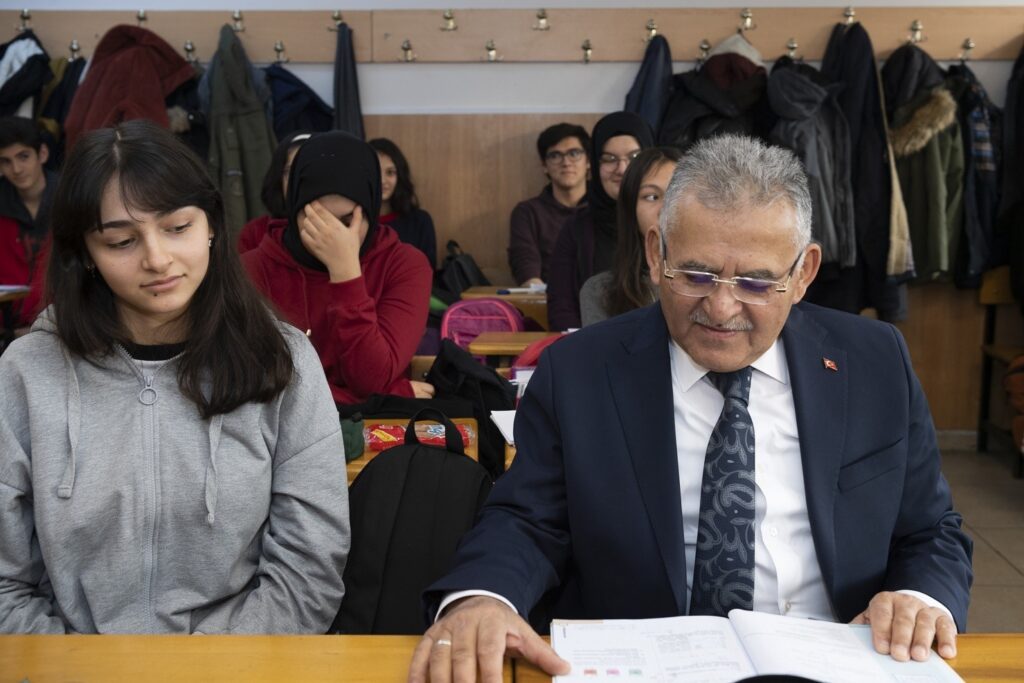In this village, women established dominance, and the men left the village with a marching band
In the 721-year-old Kozluören Neighborhood of Bursa, women have taken over the management of the village through a tradition that has been ongoing for 523 years. Starting in the morning, gendarmerie teams blocked the village entrance to prevent men from entering. The men handed over their tasks to their wives in the village.

In the 721-year-old Kozluören Neighborhood of Bursa, the management of the village has been handed over to women for 523 years following a tradition. From the early morning hours, gendarmerie teams blocked the village entrance to prevent men from entering. While the men handed over their tasks to their wives and watched the oil wrestling competitions, the women ruled for a day.
The 523rd Traditional Oil Wrestling and Women’s Day Pilaf Festival in the 721-year-old Kozluören Neighborhood, which dates back to the Ottoman period, showcased colorful scenes. Starting in the morning, the men gathered in the village square and, with an announcement from the mosque, handed over their village duties to their wives. The village head delivered the seal to his wife, while the coffee shop owner handed his tray to his spouse, wishing them well. Accompanied by the mehter band, the men left the village and watched the oil wrestling competitions held outside the village. The gendarmerie teams prohibited men’s passage by blocking the village entrances. In the village now under the dominance of women, some women continued the tasks taken over from their husbands, while others gathered in the square to have fun. During the day, women playing games in the coffee shop and swinging on swings offered meat bulgur pilaf and ayran to female guests from various provinces that they had prepared in advance. Men, whose entry to the village was strictly forbidden until the evening, spent their time watching the wrestling festivities organized outside the village and hosting arriving guests.
“Our ancestors entrusted the village to women when going to war”
Kozluören Neighborhood Head Mehmet Çalışkan, who narrated the story behind the 523-year-old tradition, said, “Due to financial difficulties, we have not been able to hold our tradition for a while, but we are carrying out its 523rd this year. In the morning, we left the village with our protocol accompanied by the mehter band. We handed over our village to our women. The head’s wife became the head, the grocer’s wife became the grocer, and the coffee shop owner’s wife became the coffee shop owner. They will serve our guests coming to the village. In the past, when our ancestors went to war, they left the village to our women so that they could stand on their own feet. We are preserving this tradition.”
“Women will reign”
Emine Çalışkan, the wife of Kozluören Head Mehmet Çalışkan, stated, “My husband handed me the seal, and today I became the head. We sent our men outside; for one day, our women will reign. We will host our guests coming to the village, and we have organized a celebration among ourselves. The men will also watch the oil wrestling competitions outside the village. Thankfully, they will be gone until 6:00 PM. Even if they come now, they will not be allowed inside; gendarmerie teams are waiting at the village entrance. They are controlling the entries and exits there.”
“In this village, everyone is Gül Hatun”
Fatma Özdaş, who expressed that the years-long tradition stems from women managing the village during wartime, said, “Our village is an ancient village of 700 years. Abdal Mehmet, who founded our village, entrusted the village to his wife, Gül Hatun, when he went to war. He also participated in the war. We continue this tradition in the same way here. In the past, when men left the village during wartime, we cooked our own meals. In this village, everyone is Gül Hatun. We continue to protect and sustain our tradition based on this story.”







